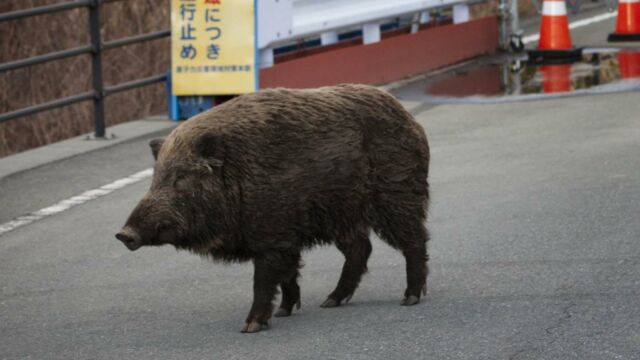Since the Fukushima Daiichi nuclear disaster that took place in 2011, the area around the plant has been devoid of human life. Instead, theanimals have been thriving. Many species including bears, wolves, horses, deer, foxes, and pigs have been taking advantage of the wild terrain in the 20-kilometer exclusion zone that was created around the Japanese nuclear plant. A similar phenomenon was observed in the Chernobyl area as well.
Discover our latest podcast
And while the animals have been busy claiming territory and copulating, researchers noticed that a peculiar breed of animal was trotting around the area—a brand new boar-pig hybrid.
A new breed
You may be thinking that the radioactivity in the area must have mutated the pigs into a new hybrid species, but unfortunately that is not the case. Donovan Anderson, a researcher from the team told BBC:
Radiation did not create a genetic change in the animals, but the invasion of domestic pigs did.
After the nuclear accident, local farm pigs that escaped from their owners went into the evacuated area and they then mated with wild boars.
It was only when the researchers analysed the genetic evolution of the animals, that they realised that some of the wild boars in the zone were actually part pig. However, over time the genes from the domesticated pigs diluted as the hybrid species mated with other bores and the farm pigs died out. Anderson added:
I think the pigs couldn't survive in the wild, but the boar thrived in the abandoned towns—because they're so hardy.
Professor Shingo Kaneko from the Institute of Environmental Radioactivity at Fukushima University confirmed:
These invasive genes are disappearing and the natural situation is returning.
Return of mankind
It’s been a decade since the accident first took place, and now humans are beginning to repopulate the area. Anderson says that this change could have an interesting impact on the hybrid wild boar species that is flourishing in the region. He said:
Humans are really the only predators of these boars.
So as people come back, it will be really interesting to see what the boar do.















